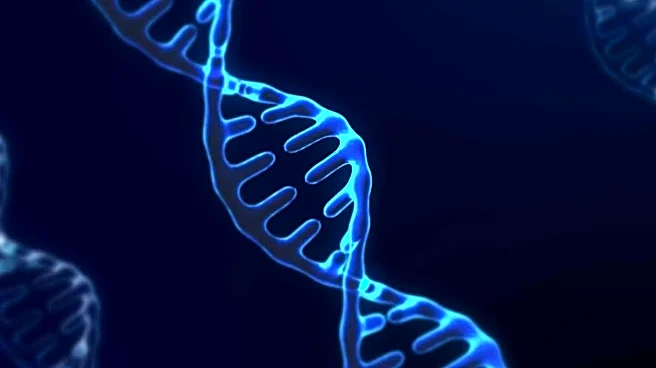What's Happening?
Recent research has highlighted the oncogenic role of the SACS gene in colorectal cancer (CRC), suggesting its potential as a therapeutic target. The study utilized integrative meta-analysis and experimental validation to explore the molecular mechanisms
of CRC. It was found that the mutation rate of the p53 gene in CRC is notably high, at 60%, which contributes to cell cycle dysregulation and tumor progression. The research involved analyzing gene expression data from multiple CRC-related datasets, identifying significant differentially expressed genes, and performing weighted gene co-expression network analysis to determine gene modules associated with clinical traits. The study also conducted functional enrichment and pathway analyses to understand the biological functions of CRC-associated genes. Machine learning models were used to identify core genes strongly associated with CRC, and their diagnostic performance was validated through receiver operating characteristic curve analysis.
Why It's Important?
The identification of the SACS gene as a potential therapeutic target in CRC is significant as it opens new avenues for treatment strategies. Colorectal cancer is a major health concern, being one of the leading causes of cancer-related deaths globally. Understanding the molecular mechanisms and identifying key genes involved in CRC can lead to the development of targeted therapies, improving patient outcomes. The study's use of advanced technologies like high-throughput sequencing and machine learning enhances the precision of gene identification, potentially leading to more effective and personalized treatment options. This research could influence future clinical practices and drug development, offering hope for better management of CRC.
What's Next?
Further research and clinical trials are likely needed to explore the therapeutic potential of targeting the SACS gene in CRC. The study suggests that drug sensitivity prediction and molecular docking simulations could be used to evaluate potential therapeutic compounds targeting the SACS gene. These steps are crucial for translating the findings into practical treatment options. Additionally, the integration of machine learning models in clinical settings could improve early detection and diagnosis of CRC, allowing for timely intervention. Stakeholders such as pharmaceutical companies and healthcare providers may play a role in advancing these research findings into clinical applications.
Beyond the Headlines
The study's approach to using machine learning and integrative meta-analysis represents a shift towards more data-driven and personalized medicine in oncology. This could lead to broader implications for cancer research, where similar methodologies might be applied to other types of cancer, enhancing the understanding of complex genetic interactions and improving treatment strategies. The ethical considerations of using genetic data and machine learning in healthcare also warrant attention, ensuring patient privacy and data security.

















